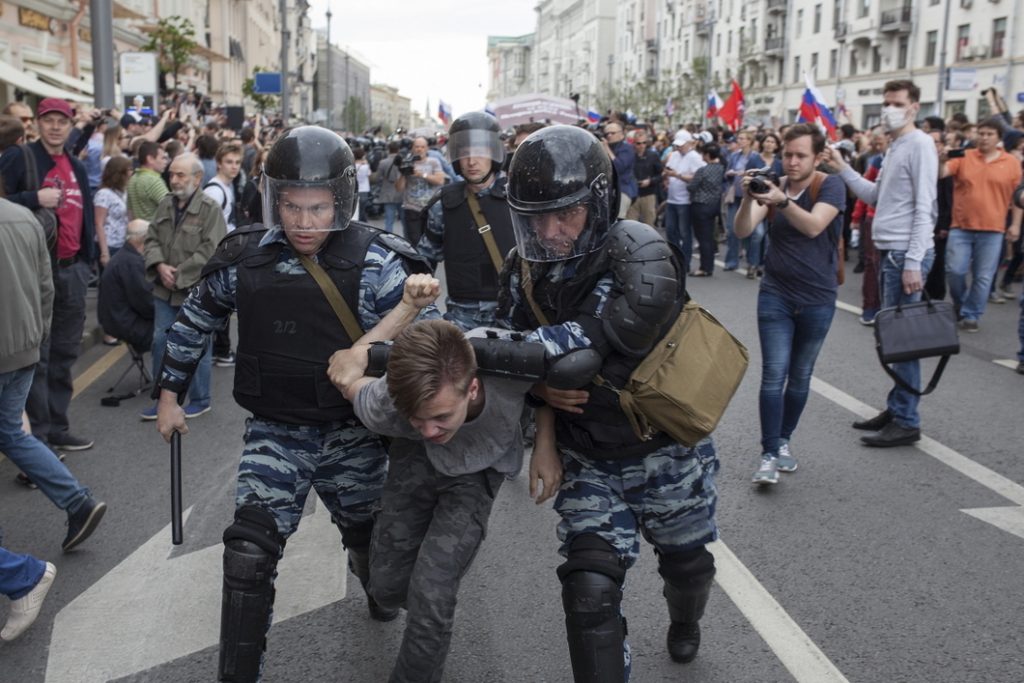Why Russia's security forces are persecuting school children
In Russia, more and more teenagers are being jailed on terrorism charges. The numbers of “averted attacks” are on the rise. The Russian independent newspaper Novaya Gazeta concluded that the special services have begun to actively target adolescents and young people in the aftermath of massive youth protests against corruption in 2017.
Over the past year in regions across Russia, there have been several high-profile arrests of teenagers at once, who security officials claim were planning to organize terrorist attacks in school buildings or law enforcement agencies.
- Years in prison for an SMS sent before the Georgian-Russian conflict of August 2008
- Protests in Russia: what to fear and what to hope for
- BBC publishes documentary on Georgian ‘rave revolution’
The intelligence services began to actively report on the prevention of such attacks in 2018, before that, only a few cases got into the media.
Since 2014, there have been at least 29 attacks in Russia involving schoolchildren and teenagers. According to the security forces, there could have been at least three and a half more such cases. Since 2013, the special services have reported at least 69 attacks planned by teenagers, of which they allegedly managed to stop 63 in the last two years.
While the details of the attacks almost immediately made their way onto social media and the media, the details of special operations to prevent such cases usually become known only from the words of security officials themselves.
It is impossible to find out what exactly is hidden behind the reports of the special services – the real fight against terrorism or a desire to ‘earn one’s stripes’.
“The FSB is a very closed structure. There is no public control, the supervisory authorities do not have the ability to control its activities, so they can draw up whatever documents they want,” says lawyer Vitali Cherkasov.
Doubts about the validity of the charges against the adolescents arise also because the evidence that comes into the public domain looks absurd.
In the past few months alone, several schoolchildren have found themselves under the target after joining VKontakte groups about the Columbine High School Massacre, or plans to blow up a virtual FSB building in Minecraft. The group creators were accused of ‘organizing a terrorist community.’
“Young people should be fought with only if they have already committed a crime. And chattering about radical topics is not uncommon for teenagers. If the leadership requires operatives to spy on suspicious youth groups, this is normal, but if it is necessary for surveillance to lead to a certain percentage of criminal cases, this does not end well,” said Alexander Verkhovski, director of the Sova information and analytical center.
Could protests be the reason for persecution?
The security forces began to take an active interest in schoolchildren two years ago: up until 2018, Novaya Gazeta managed to find only six cases when the special services had publicly reported on the prevention of attacks planned by teenagers, whereas in the last two years they have been reporting this regularly.

The protests in the spring of 2017, which began after the release of an investigation from Alexei Navalny titled, “He’s not Dimon,” may be the reason for the close attention of the security officials to the teenagers.
Then, young people went out en masse to rallies against corruption throughout the country.
“It seems that after the participation of teenagers in the mass protests of Navalny, the idea was floated that they were being drawn into some kind of political activity…
“Earlier, if the FSB found a group of 14-15-year-old anarchists or monarchists who were discussing how to blow up something – and there are, of course, always such cases – then they limited themselves to preventive measures, would intimidate them somehow, take them under surveillance and considered their task completed. There would be operational work, but criminal cases, most likely, would not have been started,” says Verkhovsky.
After these protests, the first high-profile cases against schoolchildren and students related to terrorism appeared: in the fall of 2017, the security forces detained the first suspects in the ‘Network case’ [Rus. Set’], in the spring of 2018, a number of individuals involved in the ‘New Greatness case’ were arrested. More than 20 people who were accused of organizing a terrorist and extremist community, as well as trying to overthrow the government, came under investigation.
The accused complained of pressure and torture by the security forces.



















